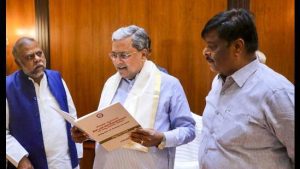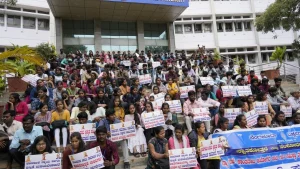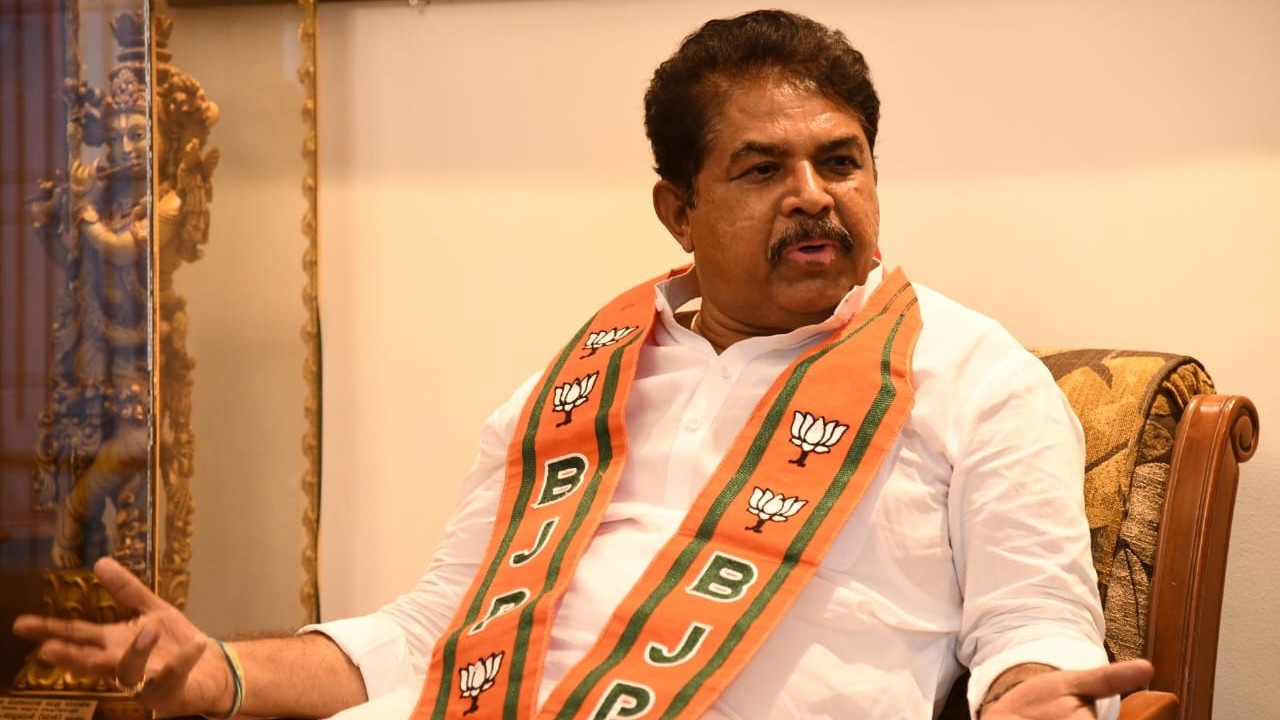Karnataka – The Karnataka caste survey commenced on Monday as the state government initiated its mammoth data collection exercise to address longstanding complaints from various communities. The controversial Karnataka caste survey aims to rectify alleged exclusions and underrepresentations from the disputed 2015 exercise, despite fierce political opposition and community protests.
The Karnataka caste survey will be conducted by the Karnataka State Commission for Backward Classes from September 22 to October 7, with an estimated budget of ₹420 crore. This comprehensive exercise involves approximately 175,000 enumerators, primarily government school teachers, who will administer detailed questionnaires to around 70 million people across 20 million households throughout the state.
Survey Methodology and Implementation Framework

According to commission chairman Madhusudan R Naik, the Karnataka caste survey incorporates advanced technological features to ensure accuracy and prevent manipulation. Each household will be geo-tagged using electricity meter numbers and assigned unique household identification codes for comprehensive tracking and verification purposes.
The Karnataka caste survey utilizes a 60-question form designed to collect extensive socio-educational data from respondents. Officials have implemented safeguards including linking ration cards and Aadhaar details with mobile numbers, while establishing helplines and online participation options to facilitate public engagement and address concerns during the enumeration process.
To address potential confusion and controversy, the Karnataka caste survey methodology includes dropdown menus for internal consumption that will not prompt specific castes. However, respondents retain the freedom to voluntarily declare their caste identity to enumerators if they choose to do so.
Background and Historical Context
This Karnataka caste survey represents the second socio-educational survey conducted by the state commission, following the initial exercise completed by the H Kantharaj Commission in 2015. The previous survey’s findings, submitted by then Backward Classes Commission chairman K Jayaprakash Hegde in February 2024, revealed significant discrepancies in caste-wise population figures.


The Karnataka caste survey became necessary after the 2015 report triggered strong reactions from the state’s two dominant caste groups – Vokkaligas and Veerashaiva Lingayats – who characterized the previous findings as “unscientific” and questioned its methodology. The Siddaramaiah-led cabinet announced plans for a new comprehensive survey in June this year.
Political Opposition and BJP Criticism


The Bharatiya Janata Party has launched severe criticism against the Karnataka caste survey, characterizing it as an “anti-people survey” designed to divide Hindu society. Karnataka Leader of Opposition R Ashoka accused the Congress government of working to fracture Hinduism under the guise of conducting legitimate social research.
Also Read: GST 2.0 Rollout: Massive Modi’s Rs. 2.5L Crore Savings Festival Begins
BJP leaders have particularly objected to the inclusion of Christian sub-castes in the Karnataka caste survey framework, petitioning Governor Thaawar Chand Gehlot to block such categories. They argue that the Congress party is attempting to please Christian leadership by incorporating religious conversion considerations into the enumeration process.
The opposition has questioned why caste names appear in what the government describes as a socio-educational survey, suggesting that the Karnataka caste survey serves political rather than administrative purposes.
Internal Congress Disagreements
Even within the ruling Congress party, the Karnataka caste survey has generated internal disagreements about methodology and scope. State Health Minister Dinesh Gundu Rao, representing the Brahmin community, has objected to recognizing Christian versions of Hindu castes within the survey framework.
Rao argues that religious conversion eliminates caste identity, stating that categories like “Lingayat Christian” or “Gowda Christian” should not exist within the Karnataka caste survey structure. He noted that similar categories appeared in previous surveys during BJP rule without attracting equivalent criticism.
Community Response and Strategic Positioning
Various community leaders have developed specific strategies for responding to the Karnataka caste survey. Vokkaliga leaders have instructed their members to declare Hinduism as their religion and Vokkaliga as their caste, avoiding sub-caste references unless absolutely necessary for accurate enumeration.
Among Veerashaiva Lingayats, the Karnataka caste survey has reignited longstanding debates about whether their community should be classified as a separate religion or as part of Hinduism. Kurubas, Muslims, Brahmins, and Scheduled Castes have convened community meetings to determine unified approaches to survey participation.
Timeline Concerns and Implementation Challenges
Religious figures have questioned whether the Karnataka caste survey can be completed within the allocated timeframe. Swami Nirmalanandanatha of the Adichunchanagiri mutt pointed to neighboring Telangana, which required 65 days to survey a population half Karnataka’s size, suggesting logistical challenges.
Union Minister HD Kumaraswamy has called for postponing the Karnataka caste survey, recommending a phased approach over three months to ensure accuracy. Advocacy groups have warned that the compressed schedule may compromise data quality, citing previous commissions that required significantly longer completion periods.
Government Justification and Objectives

Social Welfare Minister Shivaraj Tangadgi defended the Karnataka caste survey as essential for gathering comprehensive data on social and educational backwardness. He emphasized that the exercise will help identify eligible beneficiaries for various government schemes while creating robust databases for policy formulation and budgetary allocation decisions.
Chief Minister Siddaramaiah has insisted that the Karnataka caste survey extends beyond simple caste enumeration, encompassing broader socio-economic data collection to provide equal opportunities through informed policy development and targeted intervention programs.

